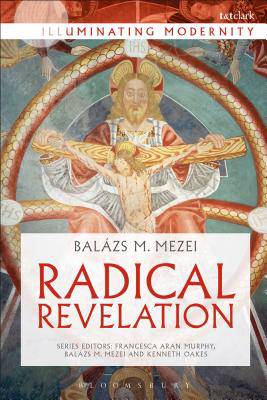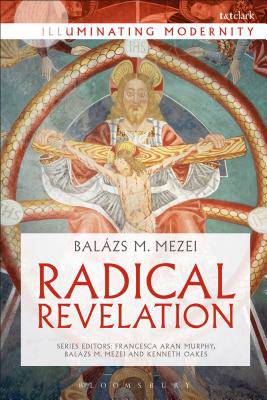
- Afhalen na 1 uur in een winkel met voorraad
- Gratis thuislevering in België vanaf € 30
- Ruim aanbod met 7 miljoen producten
- Afhalen na 1 uur in een winkel met voorraad
- Gratis thuislevering in België vanaf € 30
- Ruim aanbod met 7 miljoen producten
Zoeken
€ 81,45
+ 162 punten
Uitvoering
Omschrijving
This volume offers a practical and innovative interpretation of divine revelation, from a philosophical-theological perspective. Balázs M. Mezei outlines the most important presuppositions of our notion of divine revelation in a historic and semantic setting, as well as elaborating upon the methodology of model analysis. He then introduces and analyses the notion of self-revelation as the most important modern understanding of divine revelation; and presents the notion of "apocalyptic personhood+? as a corollary of radical personhood, which is further developed into apocalyptic phenomenology.
Mezei further examines the remarkable development of some of the most important notions in the history of Christianity, along with the homogenous infrastructure of these notions in the very essence of the religion: the doctrine of Trinity. Covering aspects of revelation from semantics to historical and cognitive origins, and engaging with a wide variety of texts - including Augustine, Thomas Aquinas and Joseph Ratzinger - Mezei makes a strong and clear statement when explaining what the radical revelation is, how it can be understood and its overall importance.
Mezei further examines the remarkable development of some of the most important notions in the history of Christianity, along with the homogenous infrastructure of these notions in the very essence of the religion: the doctrine of Trinity. Covering aspects of revelation from semantics to historical and cognitive origins, and engaging with a wide variety of texts - including Augustine, Thomas Aquinas and Joseph Ratzinger - Mezei makes a strong and clear statement when explaining what the radical revelation is, how it can be understood and its overall importance.
Specificaties
Betrokkenen
- Auteur(s):
- Uitgeverij:
Inhoud
- Aantal bladzijden:
- 384
- Taal:
- Engels
- Reeks:
Eigenschappen
- Productcode (EAN):
- 9780567688781
- Verschijningsdatum:
- 30/05/2019
- Uitvoering:
- Paperback
- Formaat:
- Trade paperback (VS)
- Afmetingen:
- 156 mm x 234 mm
- Gewicht:
- 548 g

Alleen bij Standaard Boekhandel
+ 162 punten op je klantenkaart van Standaard Boekhandel
Beoordelingen
We publiceren alleen reviews die voldoen aan de voorwaarden voor reviews. Bekijk onze voorwaarden voor reviews.








